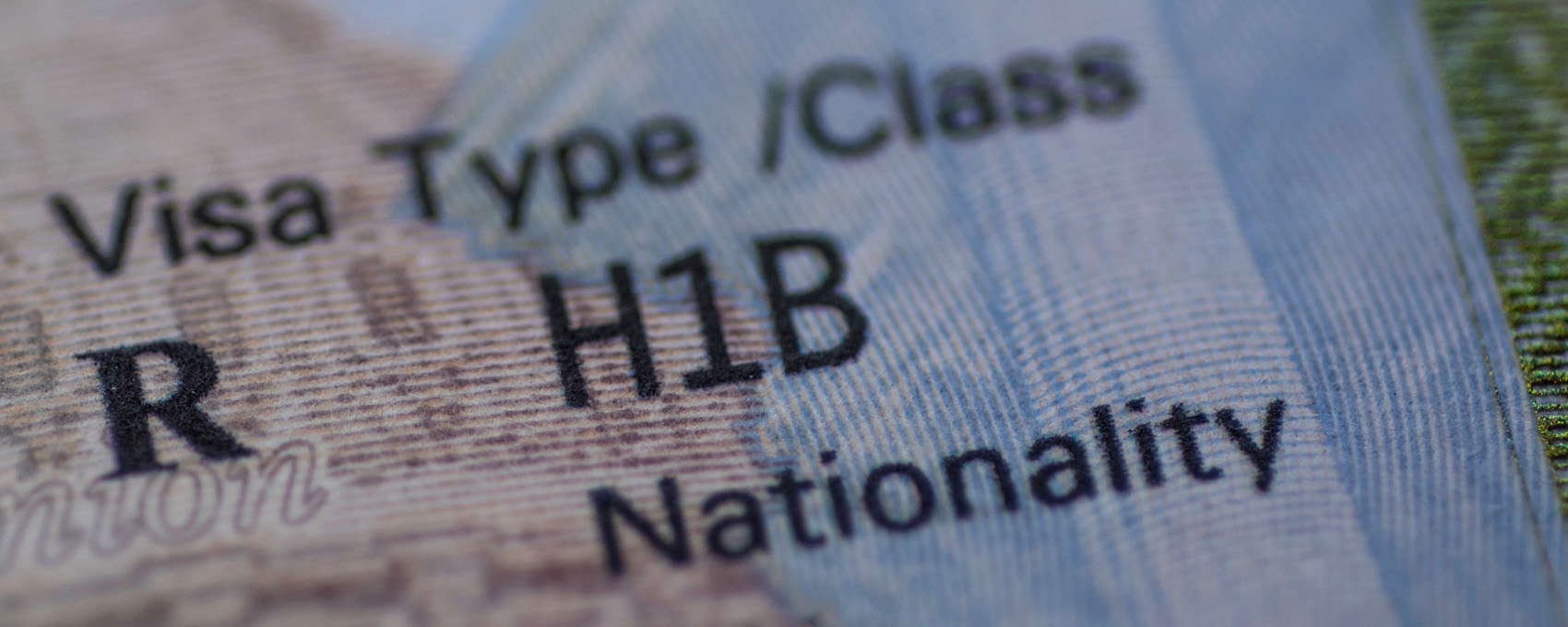What are 4 Important Things to Know About the H-1B 2024 Visa Program?

By Joseph Asir, Of Counsel & Practice Chair
Time sensitive information from the Immigration Law practice team at Davidoff Hutcher & Citron LLP regarding the H-1B 2024 visa program.
The H-1B Cap: Understanding the 2024 Quota and What It Means for Employers and Employees-The H-1B visa is a highly sought-after visa for skilled foreign workers in specialty occupations. The H-1B visa program has a yearly quota, known as the cap, which limits the number of visas that can be issued each year. In 2024, the H-1B cap is expected to be a key topic of interest for employers and employees alike.
1. What is the H-1B Cap? The H-1B cap is the annual limit on the number of H-1B visas that can be issued to foreign workers. The cap is set by the U.S. Congress and is currently set at 65,000 visas per year, with an additional 20,000 visas available for individuals with a U.S. master’s degree or higher. The cap applies to new H-1B visas, excluding renewals and extensions for current H-1B visa holders.
2. Why is the H-1B Cap Important? The H-1B cap is important because it determines the number of skilled foreign workers who can enter the U.S. each year to work in specialty occupations. The cap can have a significant impact on the U.S. economy and the ability of employers to recruit and retain talented foreign workers. In recent years, the demand for H-1B visas has consistently exceeded the supply, with many highly skilled foreign workers being unable to obtain an H-1B visa due to the cap.
3. What Should Employers and Employees Expect in 2024? The H-1B cap is set by the U.S. Congress, and any changes to the cap must be approved by lawmakers. On January 27, 2023 U.S. Citizenship and Immigration Services (USCIS) announced that the initial registration period for the fiscal year 2024 H-1B cap will pen at noon Eastern on March 1 and run through noon Eastern on March 17, 2023. During this period, prospective petitioners and representatives will be able to complete and submit their registrations online at the H-1B registration system.
To learn more click here.
Based on past trends and current immigration policies, it is expected that the demand for H-1B visas will continue to exceed the supply in 2024. In March of 2023, employers submitted 483,927 registrations for the FY 2023 quota. USCIS selected 127,600 of these registrations—about 26 percent—to meet the quota. The selection rate was 1 out of 4. The agency typically selects more petitions than are needed to meet the quota to account for employers that don’t follow through on the petition process, as well as cases that are denied, rejected or withdrawn. This means that employers and employees should prepare for a competitive process in 2024 as well. It is likely that many highly skilled foreign workers will be unable to obtain an H-1B visa due to the cap.
4. What Can Employers and Employees Do to Prepare? Employers and employees who are interested in the H-1B visa program can take several steps to prepare for the 2024 cap:
- Start early: The H-1B visa application process can be lengthy, so it is important to start early and allow enough time for preparation and filing. We start receiving case information from February 1 and continue all the way to March 17, when the lottery closes
- Consult with our skilled immigration attorneys: Our experienced immigration attorneys can provide guidance and assist with the H-1B visa application process. We will immediately send you information sheets to complete for the H1B process.
In conclusion, the H-1B cap is an important consideration for employers and employees seeking to enter the U.S. for work in a specialty occupation since this is the only option available to recruit qualified, skilled professionals. We had tremendous success in our CAP 2023 H1B filings and we hope to replicate the success for the CAP 2024 filings.

ABOUT THE AUTHOR
Joseph Asir is the Chair of the Immigration Law practice and has been practicing Immigration Law for over 25 years.
His practice group directs hundreds of immigrant visa cases annually and processes hundreds of non-immigrant visa applications for individuals and companies, with a focus on H-1B, H-2B, L-1 and EB-1 through EB-5 visa applications.

